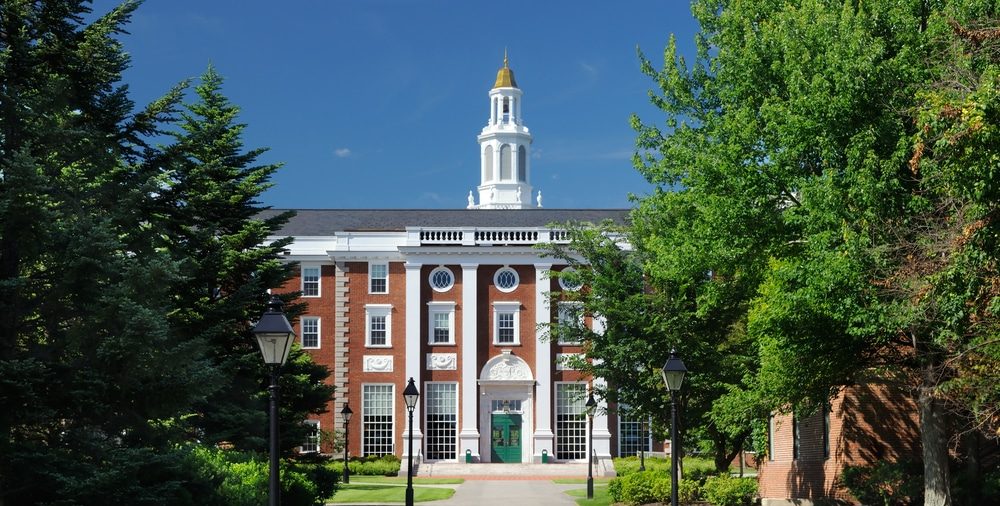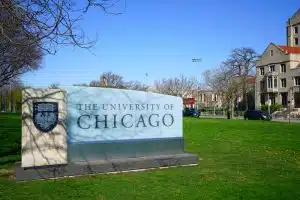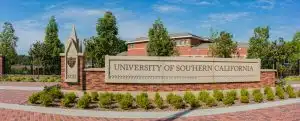Harvard’s Graduation Rate: A Look at the Numbers
With its storied history and reputation for academic excellence, Harvard University is a notable academic institution, garnering interest from prospective students worldwide. Harvard’s graduation rate, which reportedly stands at a striking 98%, is a captivating statistic. This article will delve into this data, illuminating what lies behind the numbers.
What is the Graduation Rate at Harvard University?
Harvard University is one of the most demanding and academically challenging universities in the United States. Candidates are well-aware that admission to this university can be extremely difficult. However, some students are unaware of the difficulties they may experience once they enroll at Harvard. While some of them worry about “What is the graduation rate for Harvard University?” The Harvard graduation rate is 96.74 percent, with 1,604 students out of 1,658 candidates earning their degrees in 150% of the normal time.
Graduation rates are calculated percentages of students that graduate or finish their program within a given timeframe. Graduation rates are an important metric because they show how much support students get and how committed the university is to helping them succeed.
Similarly, retention rates are an important indicator to evaluate since they provide an overview of how satisfied students are with their college experience. Graduation rates, as opposed to retention rates, are widely considered in college rating lists such as US News & World Report and Forbes.
Harvard Graduation Rates by Gender
The following table details Harvard University’s graduation rates (150% normal time) by gender. The graduation rate was 96.74% last year where 1,604 students out of 1,658 aspirants completed their degree.
| Candidates for Graduation | Completers | Graduation Rates | |
| Total Students | 1,658 | 1,604 | 96.74% |
| Male | 852 | 816 | 95.77% |
| Female | 806 | 788 | 97.77% |
Graduation Rates for BS Degrees by Completion Periods
All students must complete their degrees by attempting no more than 150% of the program’s published length. For example, the regular program of study is normally finished in 128 credit hours (8 semesters), hence a student cannot complete their degree in more than 192 credit hours (12 semesters).
| Completion Period | Total | Male | Female |
| 4 Years or Less | 86.31% | 85.09% | 87.59% |
| 5 Year | 94.93% | 93.78% | 96.15% |
| 6 Year | 96.74% | 95.77% | 97.77% |
First-year, full-time students under the age of 25 are far more likely to complete their studies in four years (on time). Some institutions cater primarily to traditional students, while others cater to “non-traditional” students who may study part-time so they take longer to graduate.
For the 2021-2022 academic year, the University awarded a total of 8,870 degrees. Harvard College awarded 1,505 degrees in total. Harvard College, the Graduate School of Arts and Sciences, and the Graduate School of Design all conferred degrees from the Harvard John A. Paulson School of Engineering and Applied Sciences. The Graduate School of Arts and Sciences awarded all Ph.D. degrees.
Several variables contribute to the outstanding Harvard graduation rate. The competitive admissions process at the school surely plays a factor. Harvard admissions officers meticulously analyze every aspect of a student’s application and how each candidate will contribute to the class.
Admitted students are not only academically capable but they have also shown enthusiasm for the institution; demonstrating to the admissions committee that they would thrive on campus.
How Many Credits Do You Need to Graduate From Harvard?
Harvard College is dedicated to fostering a foundation in liberal arts and sciences as an essential part of its mission. The institution firmly believes that in order to make a positive impact on the world, students must first grasp its complexities. The liberal arts and sciences serve as a broad intellectual framework, equipping students with critical thinking, analytical reasoning, and effective writing skills. These proficiencies are instrumental in preparing students to navigate the intricate challenges of the ever-evolving world and to tackle unforeseen obstacles.
By immersing themselves in diverse ideas and fostering innovative thinking, students become better equipped to lead purposeful lives, engage as responsible global citizens, and contribute to the advancement of society. The shaping of their thoughts and perspectives is heavily influenced by the intellectual encounters and self-development they experienced during their time at Harvard.
In terms of academic requirements, a Harvard undergraduate student must successfully complete 32 courses or 128 credits to earn a bachelor’s degree. However, students with Advanced Standing, aiming to graduate in six terms or pursuing a fourth-year master’s degree, are credited with 32 credits towards their degree, leaving them with 96 credits to complete. Students with Advanced Standing who intend to graduate in seven terms receive 16 credits towards their bachelor’s degree and, consequently, must complete 112 credits.
Advanced Standing students often complete the minimum degree prerequisites in a span of three years. Typically, they are anticipated to follow the conventional curriculum within their chosen concentrations. This includes participating in sophomore tutorials during their first year and junior tutorials during their second year, provided they are enrolled in the honors program.
Harvard University maintains a residency mandate of two years, but Advanced Standing does not impede students from pursuing their studies abroad. Students desiring to undertake coursework outside their home institution while still aiming for a three-year graduation plan can request a petition from the Office of International Programs for the recognition of credits earned during their non-residential studies.
Advanced Standing students interested in studying abroad should make early contact with the Office of International Education, particularly during their first year. This early communication is crucial because studying abroad often necessitates prior preparations such as language training and detailed planning.
A third of a student’s degree courses will fulfill Harvard College’s fundamental requirements. These encompass General Education, Distribution, Quantitative Reasoning with Data, Expository Writing, and Language courses. It’s important to note that accepting Advanced Standing does not exempt students from any degree prerequisites, including foreign language proficiency and expository writing. Students are expected to fulfill all General Education requirements.
Harvard’s General Education courses actively translate the university’s liberal arts and sciences curriculum into practical learning experiences. These courses engage with persistent questions, address pressing issues, and help students recognize that no single field can comprehensively address these questions or challenges in isolation. This approach encourages students to explore their intellectual curiosity across a range of subject areas, fostering a culture of asking profound questions, investigating unfamiliar concepts, and exploring innovative ideas.
Understanding Graduation Rates
Before delving into the specifics of Harvard’s stellar rates, gaining a fundamental understanding of graduation rates and their relevance in higher education contexts is worthwhile.
Graduation rates essentially represent the percentage of a higher education institution’s students who complete their study programs within a set timeframe, typically four to six years for Bachelor’s degree programs. Comprehensive reporting of these rates can play a crucial role in higher education – offering prospective students a glimpse of their likely academic trajectory should they attend a particular institution.
Moreover, high graduation rates signal levels of student satisfaction and institutional effectiveness, two aspects that positively impact the university’s reputation and future enrollments.
When considering graduation rates, it is important to understand the various factors that can influence them. These factors include the quality of academic programs, the level of support services provided to students, the financial resources available to the institution, and the overall campus climate. Each of these elements contributes to the success and retention of students, ultimately affecting graduation rates.
The Importance of Graduation Rates
Graduation rates are not just numbers; they hold significant importance for students and institutions. For students, high graduation rates indicate a higher likelihood of completing their degree on time, which can lead to better career prospects and higher earning potential. Additionally, students who graduate on time are more likely to avoid the financial burden of additional semesters or years of study.
For institutions, graduation rates serve as a measure of success and accountability. High rates reflect positively on the institution’s ability to provide quality education and support services, attracting more students and enhancing its reputation. On the other hand, low graduation rates can raise concerns about the institution’s effectiveness and may lead to a decline in enrollment and funding.
How Graduation Rates are Calculated
Generally, a university’s graduation rate is calculated as the percentage of an institution’s first-time students attending college full-time who complete their program within 150% of the “normal time” required to complete the program. It’s important to note that this calculation does not consider part-time students or those who transfer in from other institutions. The exclusion of these categories of students can sometimes result in skewed statistics.
Calculating graduation rates involves tracking the progress of students from their initial enrollment to their completion of the program. Institutions use various data collection methods, including student surveys, official records, and tracking systems. By analyzing this information, universities can identify areas where additional support and resources may be needed to improve graduation rates.
It is worth mentioning that graduation rates can vary significantly across different types of institutions, such as public universities, private colleges, and community colleges. Factors such as student demographics, academic rigor, and institutional resources can contribute to these variations. Therefore, when comparing graduation rates, it is essential to consider the context and characteristics of the specific institution.
Factors Influencing Harvard’s Graduation Rates
Harvard University, renowned for its academic excellence and high graduation rates, is influenced by a multitude of factors that contribute to its success. These factors encompass various aspects of the university’s environment, including academic, socio-economic, and institutional factors.
Academic Factors
Harvard’s commitment to academic excellence is a key driver behind its impressive graduation rates. The university’s rigorous academic programs are designed to challenge and inspire students, fostering a culture of intellectual growth and achievement. With a focus on individual student development, Harvard ensures that each student receives personalized attention and guidance throughout their academic journey. Small class sizes facilitate meaningful interactions between students and faculty, promoting a collaborative and engaging learning environment. By providing the necessary resources and support, Harvard empowers its students to overcome challenges and successfully complete their degrees.
Socio-Economic Factors
While academic factors play a significant role, socio-economic factors also influence graduation rates at Harvard. It is well-documented that students from higher socio-economic backgrounds tend to have higher graduation rates compared to their less privileged peers. Recognizing the importance of diversity and equal access to education, Harvard has implemented various initiatives to level the playing field.
The university offers a range of scholarships and substantial financial aid packages to ensure that talented students from all socio-economic backgrounds can pursue their academic goals. By removing financial barriers, Harvard enables a more diverse student body to thrive and succeed academically.
Institutional Factors
Institutional factors within Harvard contribute to its students’ overall success and high graduation rates. The university places great emphasis on providing comprehensive student support services, recognizing that a strong support system is crucial for student success. These services include academic advising, counseling, and career guidance, ensuring students have the necessary resources to navigate their academic journey effectively.
Additionally, Harvard fosters a healthy campus environment that promotes student well-being and engagement. The university’s dedicated faculty members, renowned for their expertise and commitment to teaching, play a pivotal role in shaping students’ educational experiences. Moreover, Harvard’s investment in quality educational resources, such as state-of-the-art libraries and research facilities, provides students with the tools they need to excel academically.
In all, Harvard’s high graduation rates are the result of a comprehensive approach that addresses various factors influencing student success. By prioritizing academic excellence, promoting equal access to education, and providing robust institutional support, Harvard empowers its students to overcome challenges and achieve their academic goals.
The Impact of Harvard’s Graduation Rates on Students and Society
Harvard University, renowned for its academic excellence and prestigious reputation, has long been recognized for its high graduation rates. These rates have a significant impact on the students themselves and society as a whole. Let us delve deeper into the implications of Harvard’s graduation rates.
Implications for Prospective Students
For high school students contemplating their university choices, the high graduation rates at Harvard signal a high likelihood of academic success. The prospect of graduating from such a notable institution can be a driving force for these prospective students, motivating them to work hard and achieve their goals. Moreover, the prestige associated with graduating from Harvard could significantly bolster their future career prospects. Employers often view Harvard graduates as highly competent individuals, making them more likely to secure desirable job opportunities.
Furthermore, Harvard’s graduation rates also reflect the university’s commitment to providing its students with a supportive and nurturing environment. The institution’s dedication to academic excellence, extensive resources, and renowned faculty ensure that students receive a well-rounded education that prepares them for future success.
Implications for Higher Education Policy
Harvard’s high graduation rates benefit its students and have broader implications for higher education policy. These rates reflect the successful outcome of the university’s policies, guiding other institutions to benchmark and implement similar practices. Policies related to admission standards, financial aid, academic support, and overall institutional climate can profoundly affect graduation rates.
By studying Harvard’s successful strategies, other universities can identify areas for improvement and implement changes that enhance their own graduation rates. This, in turn, leads to a more educated society, as more students are able to complete their degrees and contribute to the workforce.
Implications for the Job Market
Finally, in the broader societal context, the more graduates a university produces, the more individuals there are entering the job market with a high standard of education, thus enhancing the country’s workforce. Harvard’s high graduation rates can be seen as playing a part in driving societal progress.
Employers often value the skills and knowledge acquired by Harvard graduates, making them highly sought after in various industries. These graduates bring a wealth of expertise and innovative thinking to the job market, contributing to the growth and development of the economy. Additionally, the success of Harvard’s graduates inspires and motivates others to strive for excellence, creating a positive ripple effect throughout society.
In conclusion, Harvard’s high graduation rates have far-reaching implications for students and society. They serve as a testament to the university’s commitment to academic excellence and provide prospective students with a strong incentive to pursue their education at Harvard. Furthermore, these rates influence higher education policies and contribute to the overall growth and development of the job market. Harvard’s impact extends beyond its campus, shaping the future of education and society as a whole.
If you need help putting the finishing touches on your college applications, at AdmissionSight, we have over 10 years of experience guiding students through the competitive admissions process.
AdmissionSight can help you put your best foot forward when applying to college this fall. Contact us today for more information on our services.







































